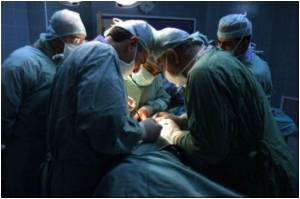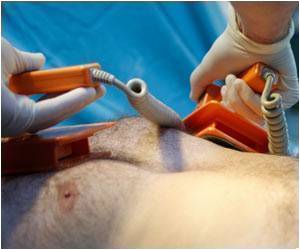Scientists have now discovered a genetic clue into understanding the role of a gene in mitral valve prolapse, a common cardiac disease

"This work provides insights into the pathways regulating valve growth and development," said Susan Slaugenhaupt, Ph.D., Associate Professor of Neurology in the Center for Human Genetic Research at Massachusetts General Hospital and Harvard Medical School and one of the lead scientists in the collaborative group that conducted the research.
"The results implicate a previously unrecognized paradigm in the development of long-term structural integrity in the mitral valve," said Ronen Y. Durst, M.D., former member of Dr. Slaugenhaupt's lab and now a senior cardiologist at Hebrew University and Hadassah Medical Center in Jerusalem. Dr. Durst presented the study this afternoon at ASHG 2013.
The researchers' first step was to link MVP to a region on human chromosome 11 in the DNA of the group of relatives with the heart disorder. By sequencing that DNA region in family members, the scientists were able to link mutations in DCSH1 to MVP.
To understand the normal biological functions altered by the mutated copy of DCSH1, the researchers turned to two animal models, zebrafish and mice. Experimentally reducing the expression level of the zebrafish version of DCSH1 resulted in abnormal heart development.
"Treating the zebrafish embryos with the normal copy of the DCHS1 gene rescued the lesion, while the mutated human DCHS1 gene did not," said Dr. Slaugenhaupt. "This finding constitutes strong evidence that the mutation disrupts the normal function of DCHS1."
Advertisement
The scientists then traced the excessive connective tissue to developmental errors in the alignment of interstitial cells responsible for proper heart valve development and growth. "These developmental errors cause mitral valve prolapse and regurgitation in adult mice," said Dr. Slaugenhaupt.
Advertisement
Dr. Slaugenhaupt said that the research was an interdisciplinary collaboration among scientists specializing in human genetics, cardiac imaging, zebrafish modeling and developmental biology with mouse modeling, with funding provided the by the Leducq Foundation Transatlantic Network of Excellence for Mitral Valve Disease.
Source-Eurekalert














